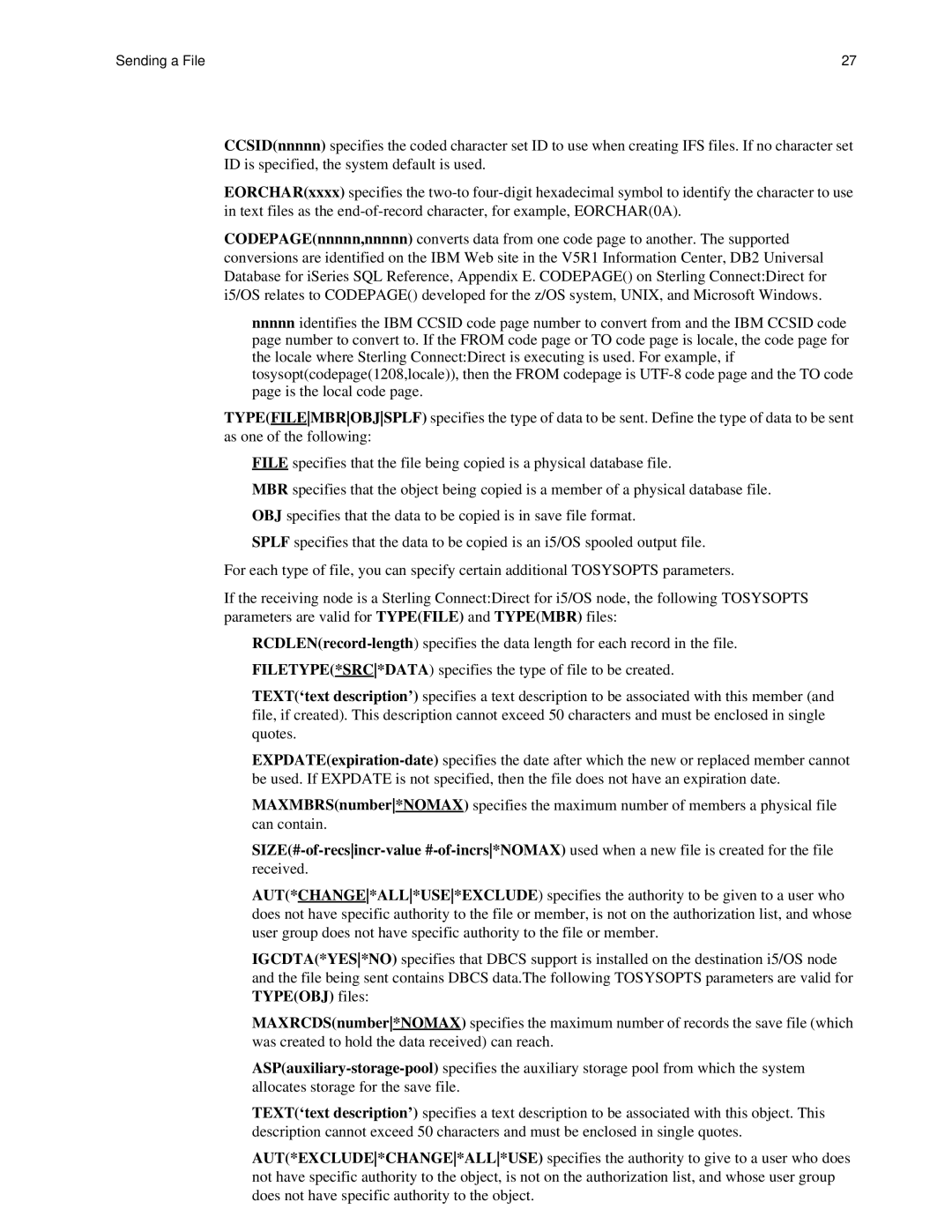Sending a File | 27 |
CCSID(nnnnn) specifies the coded character set ID to use when creating IFS files. If no character set ID is specified, the system default is used.
EORCHAR(xxxx) specifies the
CODEPAGE(nnnnn,nnnnn) converts data from one code page to another. The supported conversions are identified on the IBM Web site in the V5R1 Information Center, DB2 Universal Database for iSeries SQL Reference, Appendix E. CODEPAGE() on Sterling Connect:Direct for i5/OS relates to CODEPAGE() developed for the z/OS system, UNIX, and Microsoft Windows.
nnnnnidentifies the IBM CCSID code page number to convert from and the IBM CCSID code page number to convert to. If the FROM code page or TO code page is locale, the code page for the locale where Sterling Connect:Direct is executing is used. For example, if tosysopt(codepage(1208,locale)), then the FROM codepage is
TYPE(FILEMBROBJSPLF) specifies the type of data to be sent. Define the type of data to be sent as one of the following:
FILE specifies that the file being copied is a physical database file.
MBR specifies that the object being copied is a member of a physical database file. OBJ specifies that the data to be copied is in save file format.
SPLF specifies that the data to be copied is an i5/OS spooled output file.
For each type of file, you can specify certain additional TOSYSOPTS parameters.
If the receiving node is a Sterling Connect:Direct for i5/OS node, the following TOSYSOPTS parameters are valid for TYPE(FILE) and TYPE(MBR) files:
TEXT(‘text description’) specifies a text description to be associated with this member (and file, if created). This description cannot exceed 50 characters and must be enclosed in single quotes.
MAXMBRS(number*NOMAX) specifies the maximum number of members a physical file can contain.
AUT(*CHANGE*ALL*USE*EXCLUDE) specifies the authority to be given to a user who does not have specific authority to the file or member, is not on the authorization list, and whose user group does not have specific authority to the file or member.
IGCDTA(*YES*NO) specifies that DBCS support is installed on the destination i5/OS node and the file being sent contains DBCS data.The following TOSYSOPTS parameters are valid for TYPE(OBJ) files:
MAXRCDS(number*NOMAX) specifies the maximum number of records the save file (which was created to hold the data received) can reach.
TEXT(‘text description’) specifies a text description to be associated with this object. This description cannot exceed 50 characters and must be enclosed in single quotes.
AUT(*EXCLUDE*CHANGE*ALL*USE) specifies the authority to give to a user who does not have specific authority to the object, is not on the authorization list, and whose user group does not have specific authority to the object.
